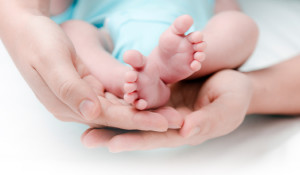
By editor - 15 April, 2018
Irish obstetricians are warning that recent statements by pro-repeal campaigners are “causing unnecessary fears to women”. Dr Mary Holohan, consultant obstetrician and gynaecologist, wrote in the Irish Independent that “only a tiny proportion of terminations of pregnancy are related to obstetrical care” and that Ireland’s laws cover this eventuality. She says that under the present law we “have full freedom and support for the requirements of ethical and safe practice”.
The theme of healthcare has been the topic of choice for many this week, as No campaign posters went up around the country – and in some cases were removed or destroyed by Yes campaigners who then posted their activities online.
A new Repeal short film has been released this week that seems to shore up Dr Holohan’s concerns. It shows a young woman taking abortion pills that she had ordered online. In distress and bleeding heavily, she implores her mother to take her to the hospital. Her mother’s response is immediate and definite: “You know what could happen, Emily. You know what could happen. We can’t. We can’t. We can’t.”
woman taking abortion pills that she had ordered online. In distress and bleeding heavily, she implores her mother to take her to the hospital. Her mother’s response is immediate and definite: “You know what could happen, Emily. You know what could happen. We can’t. We can’t. We can’t.”
While it is never stated outright, there is a very clear insinuation that any attempt to seek medical care after taking abortion pills would result in the patient being reported to the authorities by healthcare professionals. Critics have said this is a very serious message to be sending women in vulnerable crisis pregnancies.
Yi Wang, a medical student and pro-life activist, says that it is “incredibly irresponsible that Repeal is putting forth this very dangerous medical information. People are absolutely able to go to their doctors to get help if they are unwell after obtaining an abortion either legally in England or illegally here.”
Canvassers say that people are indeed being misled by false information. Maire, an engineer from Galway, says that while the issue of healthcare is vital and should be discussed, canvassers are reminding people on the doors that what is being voted on is not healthcare, but an extremely permissive abortion regime that would see abortion on demand up to 12 weeks introduced into Ireland. “People are forgetting that what’s being proposed is much more liberal than the UK’s regime, and that even though they began with limited abortion, it got progressively much more wide-ranging. Once people understand that, they don’t want to see us going the same way.”
At the Save the 8th Conference in Dublin this week, Louise Dunleavey shared her story. “During my fifth pregnancy I developed life-threatening sepsis, the same condition that led to the tragic death of Savita Halappanavar. I know from first-hand experience that doctors were not constrained by the Eighth Amendment from acting to save my life.
“They told me they’d discovered an abscess on my spine. I didn’t understand the severity of it, or that I was rapidly heading towards paralysis and the next state would be death. But doctors worked very efficiently and aggressively to treat me straight away.
“The doctors originally thought they were going to have to do surgery, and in order to do that they would have had to end my pregnancy by delivering my baby early. The doctors were very concerned and I was their priority throughout all of this.”
Thankfully, because the condition was caught early, the medical team was able to treat Louise’s sepsis with antibiotics, and did not have to resort to surgery. She and her five children are now in perfect health, and grateful to the doctors’ care of them during her pregnancies. However, she says that clarity is needed on the difference between healthcare and abortion.
“I believe there is a big difference between the death of a baby because of treatment for the mother, and the intentional killing of that baby. Had my baby died as a result of the treatment because of my ill health during the pregnancy, I would have been very upset and offended if my baby was included in abortion statistics, because it wouldn’t have been an abortion. I think abortion campaigners are scaremongering and trying to frighten women, when the facts show that women like me are safe under the Eighth Amendment, because abortion isn’t healthcare. It is life-ending, not life-saving.”
Louise’s story does what the Repeal film fails to do: It gives due consideration to the second patient in any pregnancy. With Ireland’s reputation for excellence in caring for mothers and babies still intact, Irish Doctors For Life is reminding voters of the Eighth Amendment’s origins as the guarantee of protection of both baby and mother. They also assert that saying that a pregnancy must be ended by delivering a baby in order to save the life of the mother, and deliberately ending the life of that baby in the process, are two very different things.
“Doctors, nurses and allied healthcare professionals are fully aware that, when taking care of a woman who is pregnant, they are caring for two distinct lives. The amendment clearly supports the standard obstetric practice of insisting on the use of all medically necessary treatments to protect the life of the mother even if this unintentionally compromises the life of the unborn child, while as far as is practicable making every effort to protect the life of that child.”
You can find out more about Irish Doctors for Life and Save the 8th on the links below: